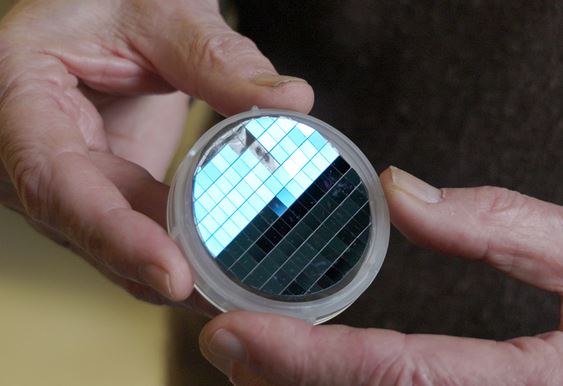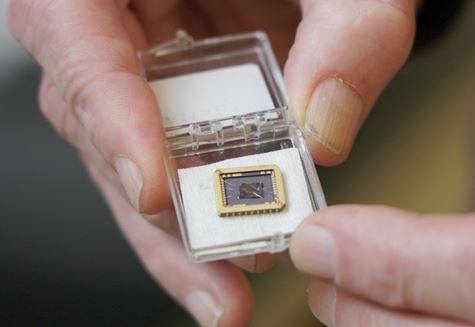Graphene comes back: Researchers make a first functional semiconductor chip
Date: 22/01/2024
Silicon is such a wonder material, it has pushed back all the other semiconductor materials due its combined extraordinary economical, environmental, manufacturable, and various such values it offers over other semiconductor materials. Silicon is simply ruling the world now in terms of proliferation of semiconductor devices all around. Still Silicon has its own weaknesses such as, expensive processing of producing pure silicon, weak performance at extreme high frequencies, high-power switching, scaling further down to angstrom nodes, and its limitations in photonics. On one side, scientists are trying to improve silicon performance in semconductor-optics where they could make silicon optical waveguides replacing copper interconnects on complex AI chips. On the other side researchers are also continuously searching for alternatives to silicon which is as abundant, economical, and easily processable and also perform well in microwave and beyond microwave frequencies such as terahertz and optical bandwidth.

Graphene looks to be excellent option since it is basically a pure carbon material and is abundantly available in environment. However graphene doesn't behave that well a semiconductor compared to silicon. It is more of a conductor than a semiconductor, posing a challenge to design a reliable semiconductor switch out of graphene. Graphene is basically a sheet of carbon atoms with very high electron mobility than silicon.
Researchers are continuously working out to make a semiconductor chip out of graphene. There are some successes but only at lab level. The most recent achievement in this area is by a group of researchers at Georgia Institute of Technology who have claimed creation of a world’s first functional semiconductor made from graphene. The team of researchers based in Atlanta, Georgia, and Tianjin, China led by Walter de Heer, Regents’ Professor of physics at Georgia Tech able to produce a graphene semiconductor device which can be made using conventional semiconductor manufacturing processes, such as lithography and etching using photomasks.
These researchers able to overcome graphene's too much of a conducting property, by achieving what is called a "band-gap", the gap between electrons moving from non-conduction band to conduction-band.
"We now have an extremely robust graphene semiconductor with 10 times the mobility of silicon, and which also has unique properties not available in silicon" says de Heer. "But the story of our work for the past 10 years has been, 'Can we get this material to be good enough to work?" He adds "We were motivated by the hope of introducing three special properties of graphene into electronics, it's an extremely robust material, one that can handle very large currents, and can do so without heating up and falling apart."
The researchers disclosed that they've achieved breakthrough when a material called silicon Carbide wafer was put in a hot furnace resulting in producing of single layer epitaxial graphene grown on crystal face of silicon Carbide wafer, that layer of graphene chemically bonded to silicon Carbide started to show semiconducting properties.
They have researched over a decade perfecting the material at Georgia Tech and also in collaboration with their research colleagues at Tianjin International Center for Nanoparticles and Nanosystems at Tianjin University in China.
The team claims "their product is currently the only two-dimensional semiconductor that has all the necessary properties to be used in nanoelectronics, and its electrical properties are far superior to any other 2D semiconductors currently in development."
Another most interesting aspect of this research is, the graphene material allows the quantum mechanical wave properties of electrons to be utilized, which is a requirement for quantum computing.
De Heer quoted "To me, this is like a Wright brothers moment" enabling another generation of electronics on its way following silicon revolution.

Soure: Georgia Tech



